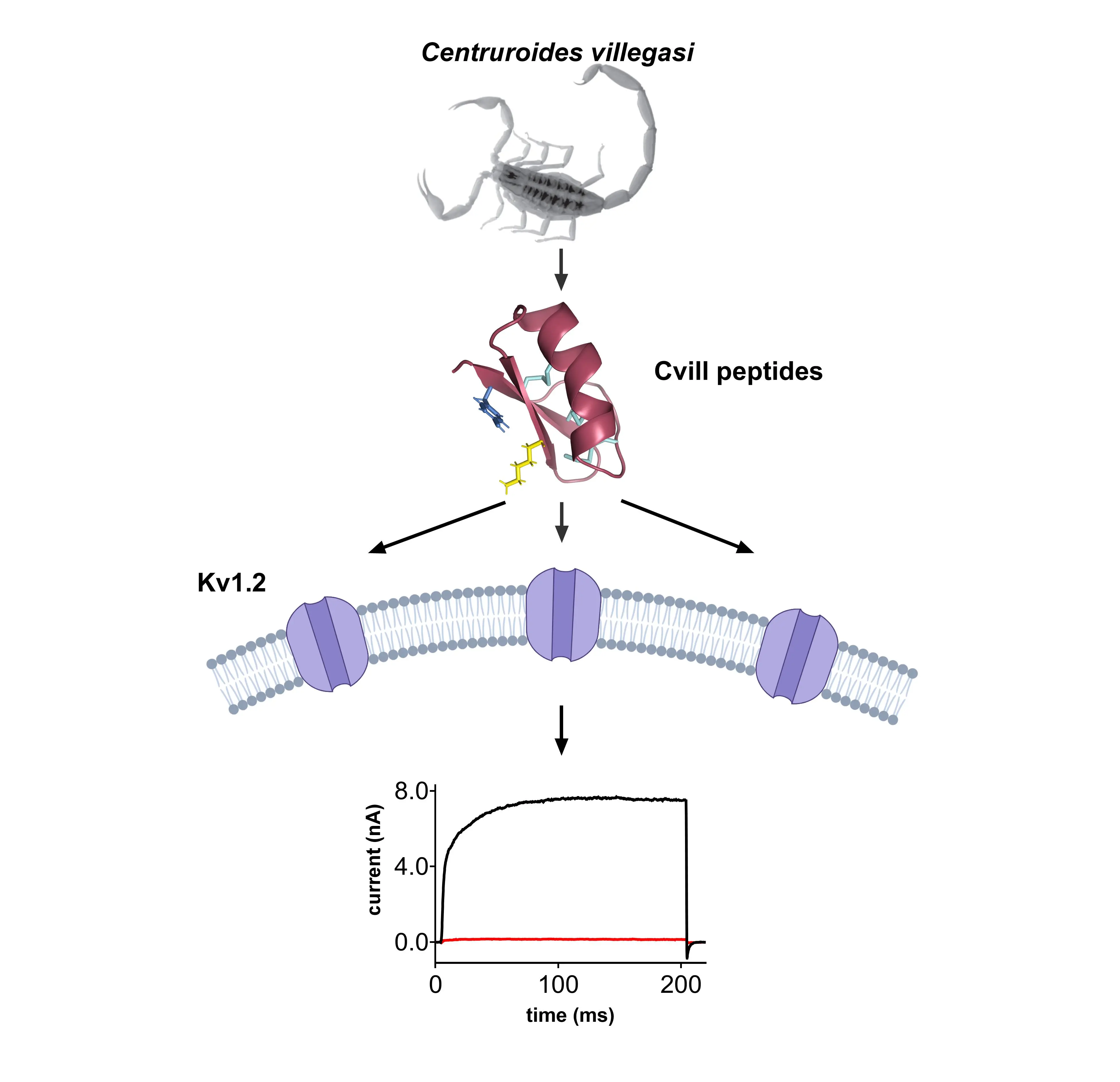
Kashmala Shakeel, Gyorgy Panyi, and their colleagues, in collaboration with Prof. Possani’s research group at UNAM, Mexico, are exploring peptide toxins that block specific potassium channels, which are proteins that control electrical signals in cells and could lead to new treatments for certain diseases. Here, the team studied novel scorpion toxins, Cvill6 and Cvill7, isolated from the venom of the scorpion Centruroides villegasi. These peptides, with molecular weights of 4277 Da and 4287 Da, consist of 38 and 39 amino acids, respectively, including six cysteines, and are closely related to the α-KTx2 family of potassium channel toxins. Through patch-clamp electrophysiology assays, Cvill7 was found to strongly block Kv1.2 channels (with an IC50 of 16 pM, indicating very high potency) and Kv1.3 channels (IC50 of 7.2 nM), while partially affecting KCa3.1 (~16% block) and Kv1.1 (~34% block) at a 100 nM concentration. In contrast, Cvill6 was less effective, blocking Kv1.2 with an IC50 of 3.9 nM and showing minor effects on Kv1.3 (~11%) and KCa3.1 (~27%) at 100 nM. Neither peptide impacted other potassium channels tested, such as Kv1.5, Kv11.1, KCa1.1, or KCa2.2. Remarkably, Cvill7 is highly selective, binding Kv1.2 450 times more strongly than Kv1.3 and 12,000 times more than Kv1.1, making it a promising candidate for treating conditions like epilepsy, where overactive mutated-Kv1.2 channels play a role.